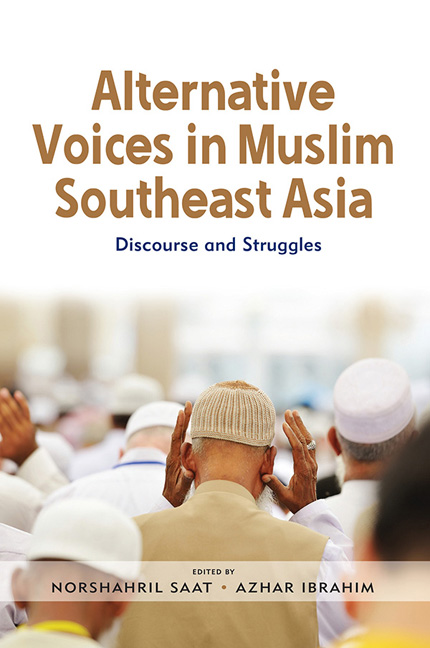2 - Civil Society–State Engagements on Religion in Malaysia
Published online by Cambridge University Press: 02 April 2020
Summary
Malaysia has an estimated population of 31.7 million, of which 28.4 million are citizens. While the country is seen as multi-ethnic, the dominant ethnic group is made up of Malays/Bumiputras (68.6 per cent) who are predominantly Sunni Muslims and considered the original settlers of the land. Malaysia is composed of thirteen states and operates within a constitutional monarchy under a Westminster-style parliamentary system. The Federal government controls most policies and decision-making, with religion and some limited matters left to the state level. The respective ruler—the sultan—heads all religious matters for each state, assisted by the state religious department.
Malaysia has always been viewed as one of the more stable countries in Southeast Asia, having had uninterrupted democratic elections since independence. The country is relatively secular and has experienced positive economic growth. In 1958 more than 60 per cent of Malaysians lived in poverty, a stark difference from the situation in 2016, when only 0.6 per cent lived below the poverty line. Today, Malaysia is a highly open upper-middle-income country, providing universal access to twelve years of basic education and to healthcare. In terms of gender equality, Malaysia is doing relatively well, with women accounting for the majority of students in public universities, and with nearly 32.3 per cent of decision-making positions in public service held by women.
However, despite the country's economic successes, media reports, both national and international, have constantly published news, articles and opinion pieces on how racism has become rampant in Malaysia. IMAN—a Malaysian independent research centre that looks at how society, beliefs and perceptions impact and influence a nation and the region—has reviewed statements made by leaders and commenters as reported in the conservative Malay newspaper Utusan Melayu over the Selangor state's decision in 2010 to allow the building of an Indian temple in a Malay-majority neighbourhood of Shah Alam. Conservatives have used the decision to play up racial sentiments, claiming that Islam is “under attack” and that the Selangor chief minister was trying to deny Islam its position as the official state religion. They also consider the move an attempt at making all religions equal and to disrupt racial harmony. The rising tempers culminated in a demonstration outside the Selangor State Administrative Building, where demonstrators stepped on the severed head of a cow in front of the building's gate. The actions of the protesters received wide condemnation.
- Type
- Chapter
- Information
- Alternative Voices in Muslim Southeast AsiaDiscourse and Struggles, pp. 9 - 16Publisher: ISEAS–Yusof Ishak InstitutePrint publication year: 2019

